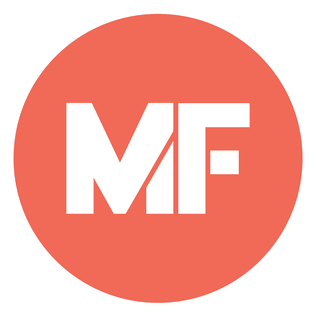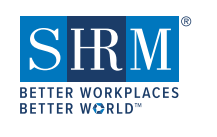Related Research Articles
Labour laws, labour code or employment laws are those that mediate the relationship between workers, employing entities, trade unions, and the government. Collective labour law relates to the tripartite relationship between employee, employer, and union.
Collective bargaining is a process of negotiation between employers and a group of employees aimed at agreements to regulate working salaries, working conditions, benefits, and other aspects of workers' compensation and rights for workers. The interests of the employees are commonly presented by representatives of a trade union to which the employees belong. A collective agreement reached by these negotiations functions as a labour contract between an employer and one or more unions, and typically establishes terms regarding wage scales, working hours, training, health and safety, overtime, grievance mechanisms, and rights to participate in workplace or company affairs. Such agreements can also include 'productivity bargaining' in which workers agree to changes to working practices in return for higher pay or greater job security.

Accessibility is the design of products, devices, services, vehicles, or environments so as to be usable by people with disabilities. The concept of accessible design and practice of accessible developments ensures both "direct access" and "indirect access" meaning compatibility with a person's assistive technology.

Paychex, Inc. is an American company that provides human resources, payroll, and employee benefits outsourcing services for small- to medium-sized businesses. Founded in 1971 and headquartered in Rochester, New York, the company has more than 100 offices serving approximately 740,000 payroll clients in the U.S. and Europe. Paychex is ranked 681st on the Fortune 500 list of largest corporations by revenue.

Mental Floss is an American online magazine and digital, print, and e-commerce media company focused on millennials. It is owned by Minute Media and based in New York City, United States. mentalfloss.com, which presents facts, puzzles, and trivia with a humorous tone, draws 20.5 million unique users a month. Its YouTube channel produces three weekly series and has 1.3 million subscribers. In October 2015, Mental Floss teamed with the National Geographic Channel for its first televised special, Brain Surgery Live with mental_floss, the first brain surgery ever broadcast live.

Navy Federal Credit Union is an American global credit union headquartered in Vienna, Virginia, chartered and regulated under the authority of the National Credit Union Administration (NCUA). Navy Federal is the largest natural member credit union in the United States, both in asset size and in membership. As of July 2024, Navy Federal has US $177 billion in assets and has 13.8 million members.

The Society for Human Resource Management (SHRM) is a professional human resources membership association headquartered in Alexandria, Virginia. SHRM promotes the role of HR as a profession and provides education, certification, and networking to its members, while lobbying Congress on issues pertinent to labor management.
Employment discrimination law in the United States derives from the common law, and is codified in numerous state, federal, and local laws. These laws prohibit discrimination based on certain characteristics or "protected categories". The United States Constitution also prohibits discrimination by federal and state governments against their public employees. Discrimination in the private sector is not directly constrained by the Constitution, but has become subject to a growing body of federal and state law, including the Title VII of the Civil Rights Act of 1964. Federal law prohibits discrimination in a number of areas, including recruiting, hiring, job evaluations, promotion policies, training, compensation and disciplinary action. State laws often extend protection to additional categories or employers.
An umbrella company is a company that employs agency contractors who work on temporary contract assignments, usually through a recruitment agency in the United Kingdom. Recruitment agencies prefer to issue contracts to a limited company to reduce their own liability. It issues invoices to the recruitment agency and, when payment of the invoice is made, will typically pay the contractor through PAYE with the added benefit of offsetting some of the income through claiming expenses such as travel, meals, and accommodation.

The Employment Rights Act 1996 is a United Kingdom Act of Parliament passed by the Conservative government to codify existing law on individual rights in UK labour law.

The New Zealand Employment Relations Act 2000 is a statute of the Parliament of New Zealand. It was substantially amended by the Employment Relations Amendment Act 2001 and by the ERAA 2004.
David Forbes is a former Canadian provincial politician. He was the Saskatchewan New Democratic Party member of the Legislative Assembly of Saskatchewan (MLA) for the constituency of Saskatoon Centre from 2001 to 2020. Forbes serves as the Minister of Environment and of Labour, and as Opposition critic for Labour, Housing, Saskatchewan Housing Corporation, Saskatchewan Worker's Compensation Board, and Diversity, Equality and Human Rights.
Occupational inequality is the unequal treatment of people based on gender, sexuality, age, disability, socioeconomic status, religion, height, weight, accent, or ethnicity in the workplace. When researchers study trends in occupational inequality they usually focus on distribution or allocation pattern of groups across occupations, for example, the distribution of men compared to women in a certain occupation. Secondly, they focus on the link between occupation and income, for example, comparing the income of whites with blacks in the same occupation.
The Fair Work Ombudsman(FWO) (or formally, the Office of the Fair Work Ombudsman), is an independent statutory agency of the Government of Australia that serves as the central point of contact for free advice and information on the Australian national workplace relations system. The Office of the Fair Work Ombudsman also investigates workplace complaints and enforces compliance with national workplace laws.
A grievance is a formal complaint that is raised by an employee towards an employer within the workplace. There are many reasons as to why a grievance can be raised, and also many ways to go about dealing with such a scenario. Reasons for filing a grievance in the workplace can be as a result of, but not limited to, a breach of the terms and conditions of an employment contract, raises and promotions, or lack thereof, as well as harassment and employment discrimination.

The Museum of Hoaxes is a website created by Alex Boese in 1997 in San Diego, California, as a resource for reporting and discussing hoaxes and urban legends, both past and present.

Irina Slutsky is an American journalist, vlogger, and early pioneer in web series.

LGBT employment discrimination in the United States is illegal under Title VII of the Civil Rights Act of 1964; employment discrimination on the basis of sexual orientation or gender identity is encompassed by the law's prohibition of employment discrimination on the basis of sex. Prior to the landmark cases Bostock v. Clayton County and R.G. & G.R. Harris Funeral Homes Inc. v. Equal Employment Opportunity Commission (2020), employment protections for LGBT people were patchwork; several states and localities explicitly prohibit harassment and bias in employment decisions on the basis of sexual orientation and/or gender identity, although some only cover public employees. Prior to the Bostock decision, the Equal Employment Opportunity Commission (EEOC) interpreted Title VII to cover LGBT employees; the EEOC determined that transgender employees were protected under Title VII in 2012, and extended the protection to encompass sexual orientation in 2015.

Alexandra Levit is an American writer, consultant, speaker, workplace expert, and futurist. She has written ten business and workplace books and is currently a nationally syndicated columnist for the Wall Street Journal. In 2019, she was named to "The Thinkers 50 Radar" List. In 2021, she received a certification in strategic foresight from the University of Houston.
Workers' right to access the toilet refers to the rights of employees to take a break when they need to use the toilet. The right to access a toilet is a basic human need. Unless both the employee and employer agree to compensate the employee on rest breaks an employer cannot take away the worker's right to access a toilet facility while working. There is limited information on the rights workers have to access public toilets among the world's legal systems. The law is not clear in New Zealand, United Kingdom, or the United States of America as to the amount of time a worker is entitled to use a toilet while working. Nor is there clarification on what constitutes a 'reasonable' amount of access to a toilet. Consequently, the lack of access to toilet facilities has become a health issue for many workers. Issues around workplace allowance to use a toilet has given light on issues such as workers having to ask permission to use a toilet and some workers having their pay deducted for the mere human right of using a toilet when they need to.
References
- ↑ "Mission and History". Workplace Fairness. Retrieved 18 November 2013.
- ↑ "2004 100 Top Websites You Didn't Know You Couldn't Live Without". PCMag.com. Archived from the original on April 20, 2008. Retrieved 18 November 2013.
- ↑ "WF Blog Selected by Forbes as "Best of the Hi Alex Web"". Today's Workplace. Retrieved 18 November 2013.
- ↑ "WF Publications". Workplace Fairness. Archived from the original on June 14, 2006. Retrieved 18 November 2013.